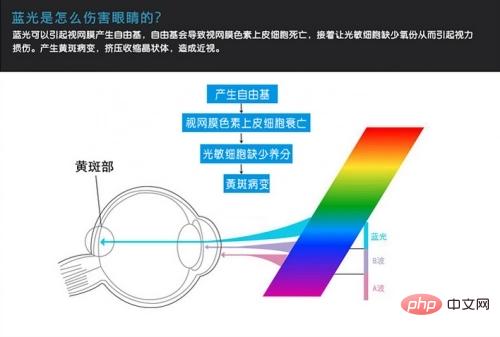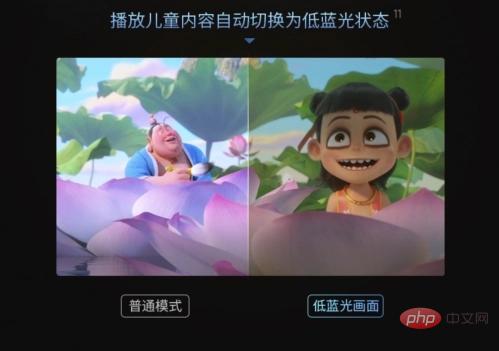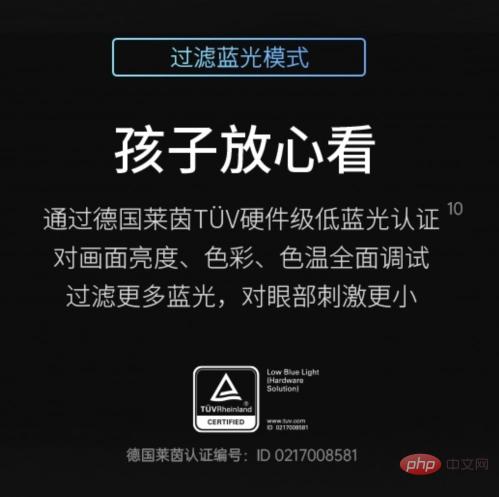
Low blue light mode is a display mode that reduces the exposure of blue light to the eyes, thereby reducing a certain amount of visual fatigue. Blue light is a kind of visible light, and its radiation damage is second only to ultraviolet light. Long-term blue light exposure can endanger the health of the eyes; while the low blue light mode can control the blue light wavelength to a lower level, thereby protecting the eyes.

The operating environment of this tutorial: Windows 7 system, Dell G3 computer.
What does low blue light mode mean
Literally understood, low blue light mode is a display mode that reduces the exposure of blue light to the eyes, thereby reducing certain visual fatigue. . Blue light is a kind of visible light. Its radiation damage is second only to ultraviolet light. Its wavelength is between 380 and 500 nanometers. Generally, blue light above 400 nanometers is a higher energy light and is more likely to threaten the health of the fundus. In other words, blue light 400 Those above nanometers are considered harmful blue light. The low blue light mode is to control the wavelength of blue light as low as possible.

In order to reduce the damage of blue light, the previous method was to apply film to the display device. Anti-blue light film technology is relatively low-cost and can effectively prevent blue light from penetrating. Now, many display equipment manufacturers have launched low blue light modes (some devices support night mode, which can also reduce blue light), and projector equipment has also supported low blue light modes in the past year or two.
Is low blue light an IQ tax?
It turns out that blue light is harmful to the eyes, so obviously low blue light is not an IQ tax. Taking a projector as an example, the projector's built-in low blue light mode will reduce blue light in the standard mode, and the picture will be more warm-toned, thus reducing the damage to the human eye. After turning on the low blue light mode, the projection screen becomes warmer, and the performance on the projector screen is very obvious, which also shows that the low blue light mode does have its certain effect.

How to choose low blue light equipment
I actually know that blue light above 400 nanometers can cause damage to the eyes, and I also know that low blue light Blue light mode is not an IQ tax, so how should we choose low blue light devices? It's very simple. The first thing is to check whether the product complies with GB/T "Technical Requirements for Health and Light Safety Application of Blue Light Protective Film" or the "Technical Specifications for Evaluation of Electronic Products with Low Visual Fatigue". The second is to choose a larger screen and control device. Eye length.

Currently, many projector equipment has passed the Rheinland hardware-level low blue light certification or passed the low-fatigue electronic product evaluation. Take the XGIMI H3S projector as an example. The XGIMI H3S has obtained the authoritative eye protection certification issued by the China Electronics Technology Standardization Institute’s Sisi Laboratory. At the same time, the XGIMI H3 S uses diffuse reflection technology, which has a large screen and is more eye-friendly. Advantages of XGIMI H3S. When choosing low blue light equipment, be sure to check whether it has been certified by a third-party laboratory.
For more related knowledge, please visit the FAQ column!
The above is the detailed content of What does low blue light mode mean?. For more information, please follow other related articles on the PHP Chinese website!